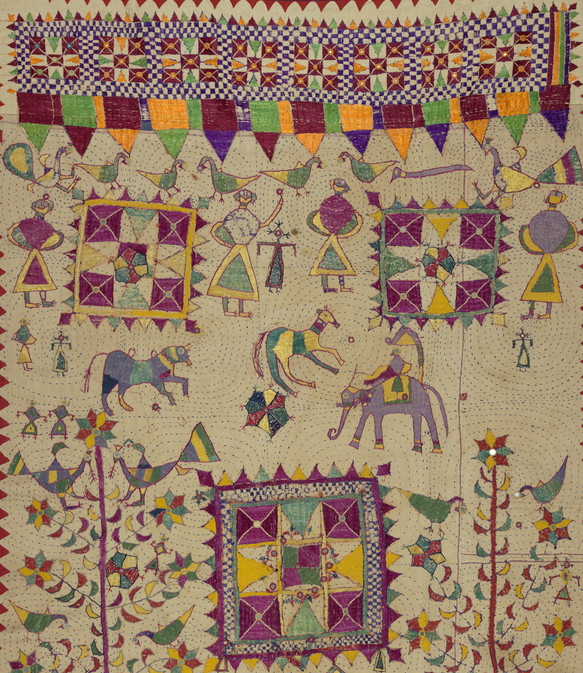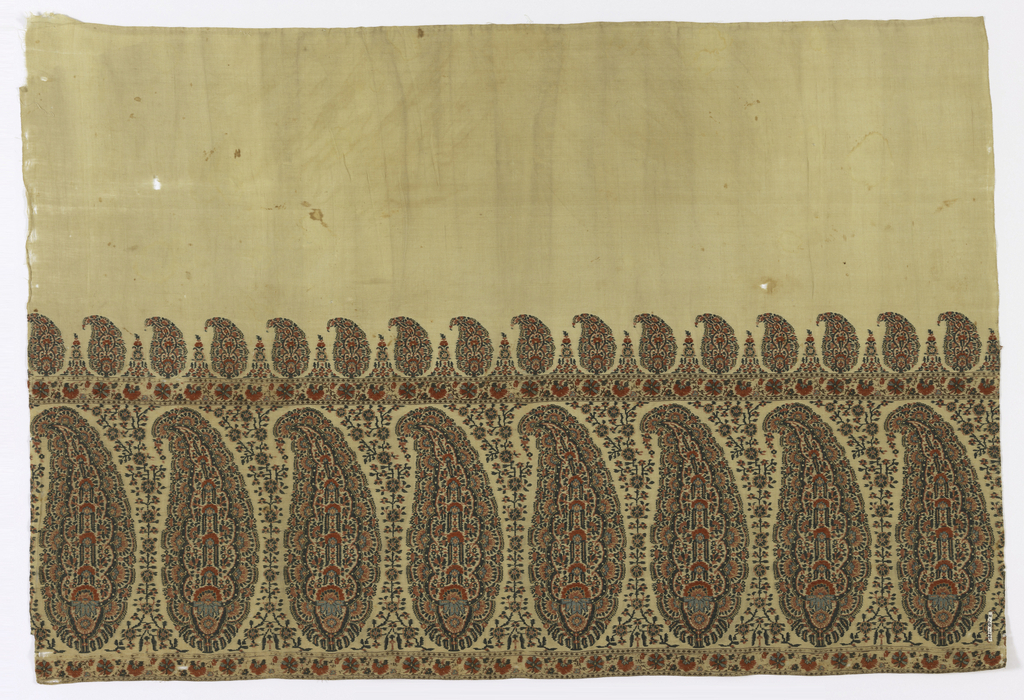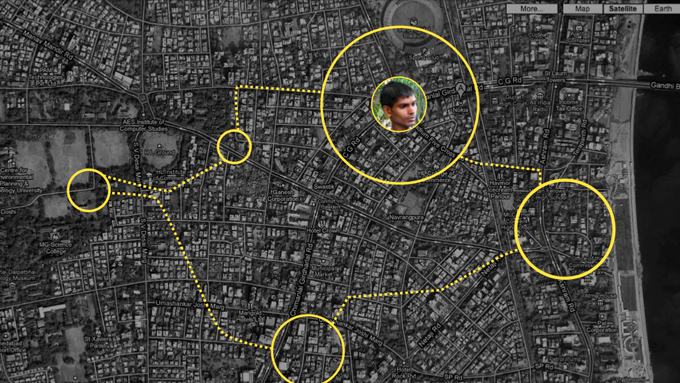Kantha is the practice of reinventing worn cotton fabric into household textiles in India and Bangladesh.
When Napoleon presented Josephine with a shawl that had been given to him on his Egyptian campaign (1798–1801), he started a fashion craze that lasted half a century and had major economic impacts on several nations. Fashionable ladies wearing the extremely lightweight Neoclassical gowns of the period went wild for the soft, beautiful and very...
Description of Babajob, a mobile and web based program aimed at connecting employers with job seekers in India.
Anab Jain, founding partner of Superflux, discusses the influence of fantastical beliefs on her work, the structure of her business, and the designer's shifting role in 21st century "architectures of collaboration."
Why? Over 1.3 billion people worldwide drink unsafe water. Ripple Effect, a collaboration between the Acumen Fund, IDEO, and Indian and Kenyan water organizations, stimulates innovation among water suppliers. In Indias Thar Desert region, the Jal Bhagirathi Foundation developed a new business model to convince communities to purchase treated water. In the Andhra Pradesh region,...
Over the next months while the Design with the Other 90%: CITIES exhibition is on display at the United Nations Headquarters in New York several individuals whose own research explores the exhibition’s subject matter have been invited to write blog entries sharing their insights, related research and projects. – Cynthia E. Smith, Curator of Socially...
2011. Created by Jaaga Media Center; produced by Babajob Services; directed by Clemence Barret and Archana Prasad; animated by Hannes Wagner. Courtesy of Babajob Services. Informal workers often find jobs through people they know, just as employers look to their social networks to find informal workers. Babajob.com, a social networking service, connects impoverished job seekers...
The evening of May 19th capped off a three-day residency at the Cooper-Hewitt for Natalie Chanin, founder and designer of the design studio Alabama Chanin. Chanin, one of the founders of the burgeoning “slow fashion” movement, followed up her two-day Design Directions workshop for teenagers with an hour-long public lecture and book signing. “Lecture”...
The poster on the fence outside the Cooper-Hewitt, National Design Museum showed a photograph of the Tata Nano with the caption “actual size.” That didn’t mean that it was easy to install for display in the museum, as you can see from this little movie (filmed by our media makers Shamus Adams and Alex Tibbets)....
On February 16th the smiling Tata Nano rolled through the front doors of Cooper-Hewitt, up the stairs and settled on a platform in the Great Hall. Unveiled last year in India by Tata Motors, India’s largest automobile manufacturer, the Tata Nano is targeted to families who had not previously been able to afford a car....
Quicktake: Tata Nano—The People's Car On view February 18 – April 25, 2010 Unveiled last year in India by Tata Motors, India's largest automobile manufacturer, the Tata Nano is targeted to families who had not previously been able to afford a car. Billed as "the people's car," the base model starts at $2,500 in India...
Join in a Twitter-based Social Entrepreneurship Chat organized by Ashoka. The real time discussions on social entrepreneurship issues take place the 1st Wed of the month, 4-6PM US Eastern Time. The next conversation on Wed, July 1, focuses on mobile innovation. Ashoka is now partnering with the Lemelson Foundation on a new initiative to support...
The majority of India’s poor still live in rural villages, while the many living in the urban areas have increasing purchasing power. In response to this growing disparity an Indian organization, GOONJ, has developed a large-scale resource mobilization initiative to re-use surplus clothing from the urban consumers to the rural poor; rather than simply giving...













